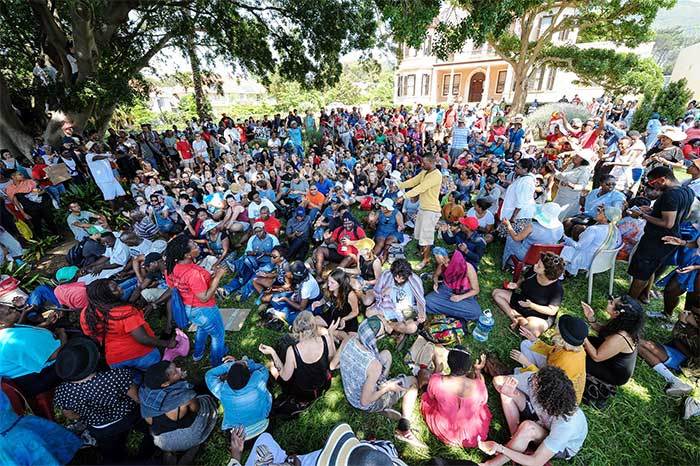Of statues, symbolism, interdicts and insourcing! Where to next for UCT?
30 October 2015 | Story by Newsroom
Dr Russell Ally, executive director of UCT's Department of Alumni and Development, reflects on the implications of 2015, a year that began with the removal of the statue of Cecil John Rhodes and will end with the return of outsourced workers.
The world changed in the past few days ... at least UCT's world. It is too soon to know the full import of the changes, but we will certainly return to a different university.
The year which began with the removal of the statue of Cecil John Rhodes will end with the return of the outsourced workers. There is a profound symbolism in the respective reversals of the fortunes of what many believed was a long forgotten statue and workers who for many years felt a deep sense of alienation towards an institution that they believed had abandoned them.
Deep divisions opened up over the past few months. These came to a head in the application for an interdict and reached breaking point when police came onto the university grounds. An institution whose raison d'etre is reasoning and intellectual persuasion turned upon itself, threatening its very purpose for existing. The force of ideas was in grave danger of being replaced by the idea of force. Not a place a university ever wants to inhabit.
Instead of the contestation of ideas, we had intolerance. And instead of the freedom of association, we had the barricading of difference.
Now, however, is not a time for recriminations, handwringing, declarations of victories or accusations of capitulation.
It is instead a time for healing, deep reflection and thoughtful contemplation of what kind of future the university can craft for itself.
UCT has its own unique challenges that it will need to tackle with boldness and imagination in the years ahead. But if there is one lesson that we have learnt from the events of the past few weeks, it is that these challenges are part of a national dialogue that is transforming the landscape of the higher education sector.
Major decisions will need to be taken in the immediate future about the financing of higher education to ensure access and success, particularly for those who have been historically disadvantaged. Access to universities for all who are academically eligible regardless of financial means has entered the national consciousness and will indelibly shape any future financing model for higher education. UCT will have its own specific contribution to make towards this national discussion, but it will not be able to find any enduring solutions outside of the national framework which is eventually agreed upon.
The fundamental underlying questions of the meaning of transformation - which has been the fuel propelling this movement forward - will now also need to be confronted within a qualitatively changed context.
Whatever the new issues that still lay ahead may be and whatever the 'old' issues are which still remain unresolved, what has emerged very clearly from this trying period we have being going through is that as an institution 'we are all in this together'.
The significance of bringing outsourced workers back into the university community and 'outsourcing' becoming a relic of our colonial past presents us with a historic opportunity to really co-create a shared institution committed to academic excellence and inclusivity.
Much of the path has been cleared and many of the obstacles removed for a genuine process of transformation to proceed with renewed optimism. Only this time hopefully defined by our collective experiences and informed by a shared vision.
Dr Russell Ally
Executive Director
UCT's Department of Alumni and Development
 This work is licensed under a Creative Commons Attribution-NoDerivatives 4.0 International License.
This work is licensed under a Creative Commons Attribution-NoDerivatives 4.0 International License.
Please view the republishing articles page for more information.








